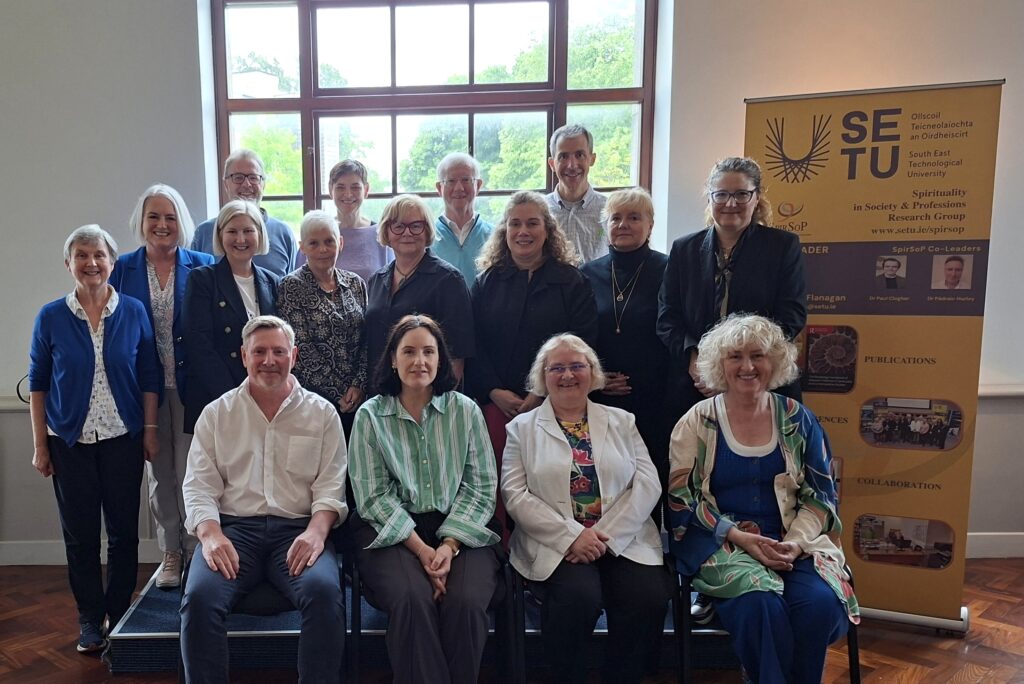Back: Kathleen, Antoinette, Rory, Bernadette, Michael, and Chris;
Middle: Tara, Sue, Elizabeth, Diane, Caroline, and Noelia;
Front: Padraic, Hazel, Bernadette, and Liz.
The Spirituality in Society and the Professions Research Group (SpirSoP) of South East Technological University (SETU) met with Professor Chris Staab, Berkeley, California, to learn and discuss about diary method for the study of spirituality. The event was hosted and organised by SpIRE on June 11, 2025. Prof Staab’s chapter on ‘From Frustration to Freedom – A Spiritual Diary as Inspiration for Diary Research’ provided the background for the event. The chapter is published in the Routledge Handbook of Research Methods in Spirituality and Contemplative Methods , which was co-edited by Bernadette Flanagan, Chair of SpIRE and Co-Lead of SpirSoP. The abstract for the chapter is given below.
In a cultural moment that increasingly privileges first-person expression in all media and literary genres, the field of Christian spirituality faces an important discernment regarding the study of spiritual autobiographies. That discernment invites us to establish criteria to read these first-person accounts as texts that inspire their readers to consider more deeply the spiritual life. This chapter will suggest that attention to the questions, the frustrations, and the difficulties that the texts present can offer a hermeneutic that can help readers study and enter into the spiritual experience narrated in the text before them. To support this hypothesis, this argument will examine three questions that Ignatius of Loyola’s Spiritual Diary presents to readers. Each question points to an obstacle in understanding what seems to be the enigmatic spiritual experience of a 16th-century Basque man. However, the questions themselves, carefully pondered, provide a path to understand Ignatius’s spiritual experience as well as the nature of the spiritual experience itself. It is hoped that readers will be encouraged to attend to their own internal movements, especially those frustrations, as a way to study with greater depth spiritual autobiographies.





